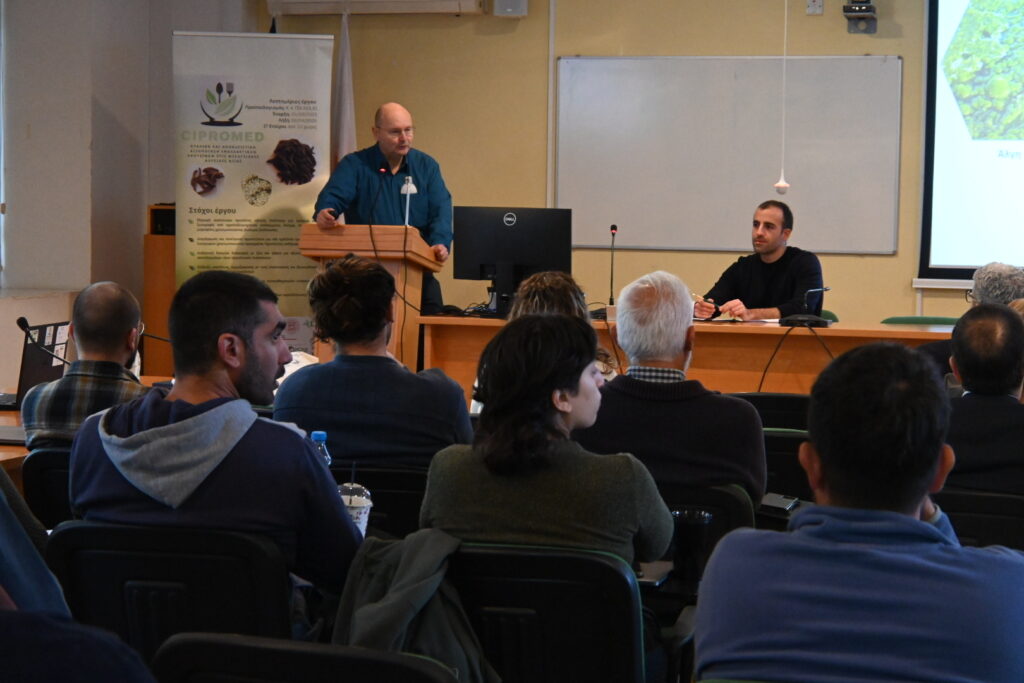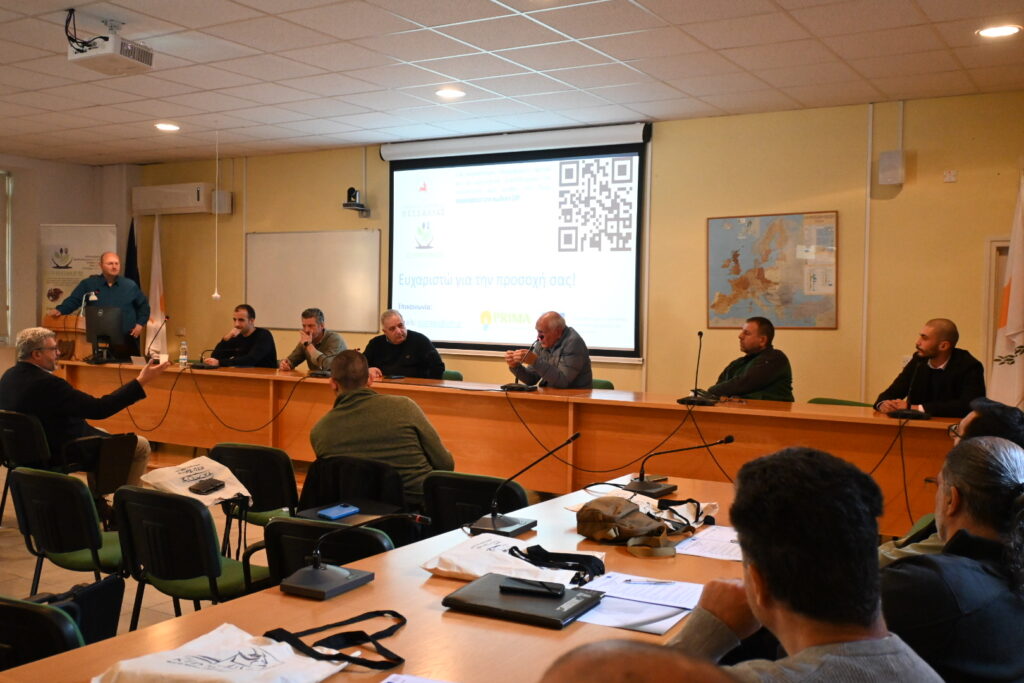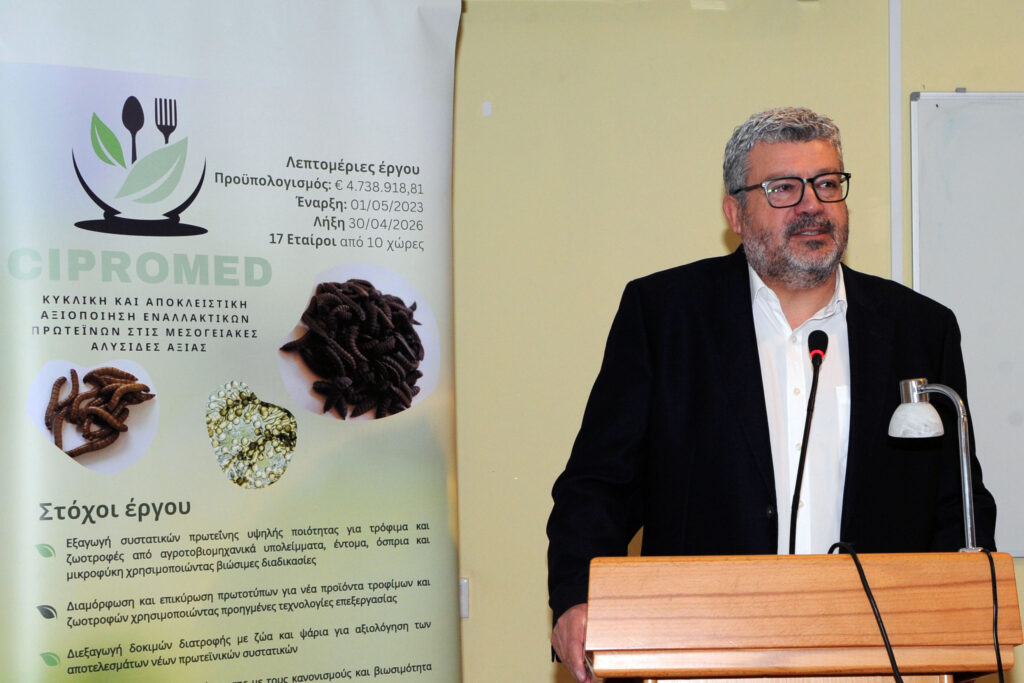
On Friday, December 13th, RTD Talos held an awareness event for the CIPROMED project.
The Minister of Agriculture, Rural Development, and Environment, Dr. Maria Panagiotou, graced the event with her presence and delivered a speech to the attendees.
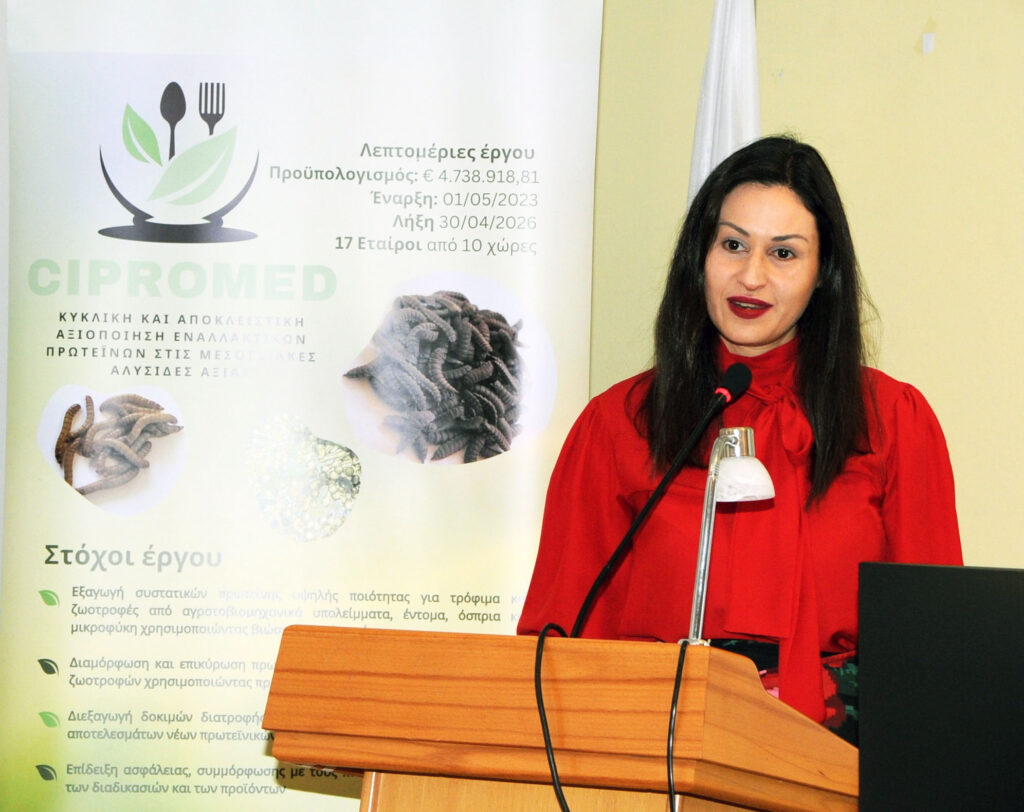
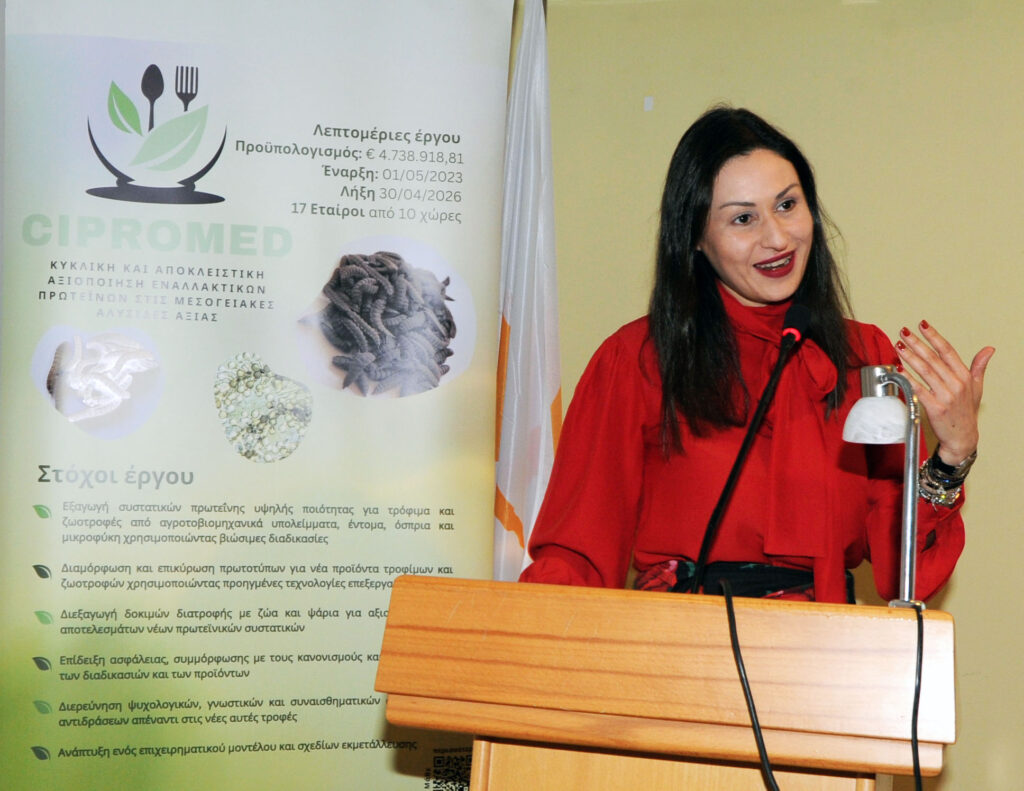
Find the minister’s speech below:
Dear friends,
It is my great pleasure to be with you today at this event, which brings together people from production, research and innovation. Today’s conference highlights the power of cooperation for the sustainable development of the primary sector and agri-food, a sector crucial for the future of the Mediterranean.
The conference takes place within the framework of the CIPROMED project. The project, funded by the European PRIMA Program, is an excellent example of how science and innovation can offer solutions to modern challenges. With a total budget of 4,7 million euros, this project brings together leading research institutions, businesses and NGOs mainly from Mediterranean countries, enhancing cooperation and knowledge exchange.
CIPROMED focuses on using alternative proteins, such as microalgae and insects, to address important issues producers face, such as high feed costs, market pressures and the need to adopt more sustainable practices. The production of sustainable alternative proteins reduces our dependence on imports and strengthens the resilience of agri-food systems, offering solutions that protect the environment and enhance productivity.
The CIPROMED project is directly linked to our policies, as expressed through the Governance Program of the President of the Republic, Nikos Christodoulides. With actions that strengthen agrotechnology, promote the use of renewable energy sources and protect biodiversity, we are investing in the creation of a resilient and sustainable primary sector, which can support our economy and respond to the challenges of the time.
Ladies and gentlemen,
It is well known that the circular economy calls on us to review the dynamics of our production with a holistic approach, which includes the redesign of our supply chain, reuse and renewal, precisely in order to address the sustainability risks that the planet faces from the reckless waste of natural resources and ecological destruction.
Sustainable food systems are now a priority at the European level. In this context, the “Farm to Fork” strategy was adopted, aiming at a fair, healthy and environmentally friendly food production, distribution and consumption system. Together we are working to promote new circular approaches with a focus on sustainable products. And the sustainability of food systems is inextricably linked to the theme of today’s conference.
Friends,
Production systems in the Member States of the European Union depend, to a large extent, on imports of protein sources of high nutritional value from third countries, particularly for the production of animal feed. The growing need for food and the pressures from production costs and climate change make it necessary to develop alternative protein sources.
Both microalgae and insects, which are also the focal point of the conference, offer promising solutions. With their high nutritional value and adaptability, they are sustainable options for both animal and human nutrition, while contributing to reducing the environmental burden.
The European Union has incorporated these innovations into its institutional framework, allowing the use of proteins from microalgae and insects in human and animal nutrition. Systematic insect farming has developed rapidly in the last decade. At the same time, using these proteins in animal feed for fish, poultry, and pigs was recently approved under a strict legislative framework that ensures human and animal health, which aligns with the “One Health” approach.
At the same time, microalgae, with over 50 years of cultivation, are a stable source of nutrients for aquaculture and are considered superfoods for human nutrition. The European Food Safety Authority (EFSA) has classified these products in the “novel foods” category, ensuring their safety and quality.
Accordingly, FAO indicates that insects constitute a source of high nutritional value with high fat levels, protein, vitamins, and trace elements.
Friends,
Today’s event is a presentation of a project and a platform for collaboration. By supporting projects such as CIPROMED, we invest in connecting science with practice, creating new opportunities for producers, farmers, livestock breeders and businesses.
The adoption of innovative solutions, such as those highlighted by CIPROMED, requires a collective effort. Consumers can incorporate these new proteins into their diets, while producers can benefit from their use in animal feed, promoting their sustainability and competitiveness.
I congratulate RTD Talos Ltd and its partners for implementing this ambitious project and organising today’s conference. I am confident that emerging knowledge and conclusions will be useful tools for all stakeholders and contribute to shaping a more sustainable future.
Thank you very much and I wish you success in your work!
